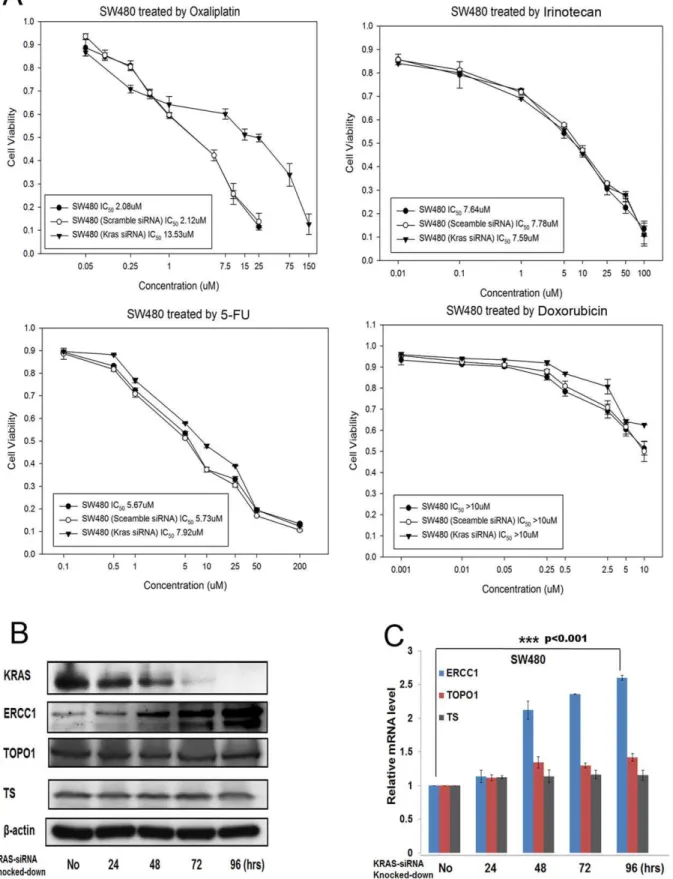KRAS mutation is a predictor of oxaliplatin sensitivity in colon cancer cells.
Texto
Imagem




Documentos relacionados
Stress and burnout can arise in nursing care work for clients in the context of infection and, importantly, in human immunodeficiency virus (HIV) infection and the occurrence
To further confirm that the UA-mediated inhibition of cell proliferation is through regulation of COX-2 signaling in colon cancer cells, we pretreated SW480 cells with celecoxib (CB,
Our data show that AMPK a (T172) was highly phosphorylated upon 10 hours of GD in wild type cells and G13D KRAS expressing cells, whereas this phosphorylation was attenuated in
To determine whether chARF and p16-ACT can also induce cell cycle arrest, U2OS cells were transfected with p16, p16-ACT, p14ARF, chARF, GFP, or no DNA (mock) and after 48 hours
(C) RD-A cells were transfected with control, Atg5 and beclin1 siRNA for 36 hours, the cells were treated with EV71 at the MOI of 10 for 12 h before Western The Interplay of
To create a population of cells resistant to LeTx intoxication, RAW 264.7 cells were treated with levels of both PLx and PLxL that resulted in 50% cell death after 24 hours..
In summary, our study showed that PNA-PCR method could easily detect the percentage of KRAS mutation in tumor cells and colorectal cancer patients with low abundance of KRAS
Cells were triple transfected with siRNAs against the FUS, EWS, and TAF15 mRNAs (siFET) or with an unspecific siRNA as control (siControl), and treated with arsenite to induce